Introducing freshly shredded Virola Bark (Virola peruviana) sourced from the Shipibo-Conibo Tribe in Peru.
We are excited to present our freshly shredded Virola (Virola peruviana), sourced directly from the Shipibo-Conibo tribe in Peru. It is a plant steeped in rich cultural, spiritual, and botanical significance. This sacred plant plays a pivotal role in the traditions of various indigenous tribes across the Amazon basin, including the Shipibo-Conibo, Yanomami, and Bora tribes.
The Shipibo-Conibo Tribe
Who Are the Shipibo-Conibo? The Shipibo-Conibo are an indigenous people residing along the Ucayali River in the Peruvian Amazon. Known for their deep spiritual beliefs, intricate artistry, and profound knowledge of medicinal plants, they have preserved their cultural heritage through centuries of change and external influences.
Cultural Practices: The Shipibo-Conibo are renowned for their shamanic traditions. Their shamans, known as onanya, are highly respected healers who use a wide variety of plants in their healing practices. These plants are integral to their spiritual ceremonies and are believed to facilitate communication with ancestors and spiritual entities. The intricate geometric patterns found in their textile and pottery art often carry significant spiritual meanings.
Other Tribes Using Virola peruviana
The Yanomami Tribe: The Yanomami people, who inhabit the rainforests and mountains of northern Brazil and southern Venezuela, also use Virola in their spiritual practices. For the Yanomami, the plant is a medium through which shamans can connect with the spirit world and seek guidance and healing for their community.
The Bora Tribe: The Bora, residing in the northeastern part of the Peruvian Amazon, have a rich tradition of using Virola. They believe the plant enables shamans to communicate with ancestral spirits and gain insights into community well-being and future events. This tradition is an integral part of their cultural identity and spiritual life.
Botanical Information
Scientific Classification:
- Kingdom: Plantae
- Clade: Angiosperms
- Clade: Eudicots
- Order: Malpighiales
- Family: Myristicaceae
- Genus: Virola
- Species: Virola peruviana
Morphological Characteristics:
Growth Habit: V. Peruviana is a tropical tree that can grow up to 30 meters in height. It is native to the Amazon Basin, thriving in the humid and dense rainforests of Peru, Brazil, and surrounding regions.
Leaves: The tree has simple, elliptical leaves with a glossy surface and pointed tips. The leaves are typically dark green and can grow up to 20 cm in length.
Flowers: The tree produces small, inconspicuous flowers that are yellowish in color. These flowers are typically clustered together in inflorescences.
Fruits: The tree bears small, red to orange fruits that contain seeds. The seeds are often covered in a fleshy aril and are known for their traditional uses by indigenous tribes.
Historical and Spiritual Uses
Historical Context: The use of Virola peruviana dates back centuries, with its significance deeply embedded in the cultural practices of several Amazonian tribes. These traditions have been passed down through generations, preserving the knowledge and rituals associated with the plant.
Spiritual Practices: For the Shipibo-Conibo and other tribes, Virola peruviana is more than just a plant; it is a sacred tool for spiritual exploration and communication. Shamans use it in rituals designed to connect with ancestors and spiritual entities, seeking guidance, wisdom, and healing. These practices are often accompanied by chanting, dancing, and other ceremonial activities that honor the spiritual world.
Scientific Research
Health and Life Science Research: Modern science has begun to explore the potential benefits of Virola peruviana. Researchers from various institutions, including the University of Copenhagen and the Centre for Advanced Studies in Health and Life Science, have conducted studies on the plant’s medicinal properties. These studies aim to understand how traditional knowledge can be integrated into contemporary health and wellness practices.
Centre for Advanced Studies in Bioscience Innovation: The Centre for Advanced Studies in Bioscience Innovation has been instrumental in examining the bioscientific aspects of Virola peruviana. Their research focuses on isolating and characterizing the active compounds within the plant, contributing to a broader understanding of its potential applications in medicine and health sciences.
Conclusion
Virola represents a profound connection between cultural heritage and botanical knowledge. This sacred plant, revered by various indigenous tribes, embodies centuries of tradition and spiritual practice. By choosing our Virola, you are supporting sustainable harvesting practices and helping to preserve the invaluable cultural heritage of the Shipibo-Conibo, Yanomami, and Bora tribes. Embrace the legacy of Virola peruviana and explore the rich tapestry of Amazonian tradition and spiritual wisdom.

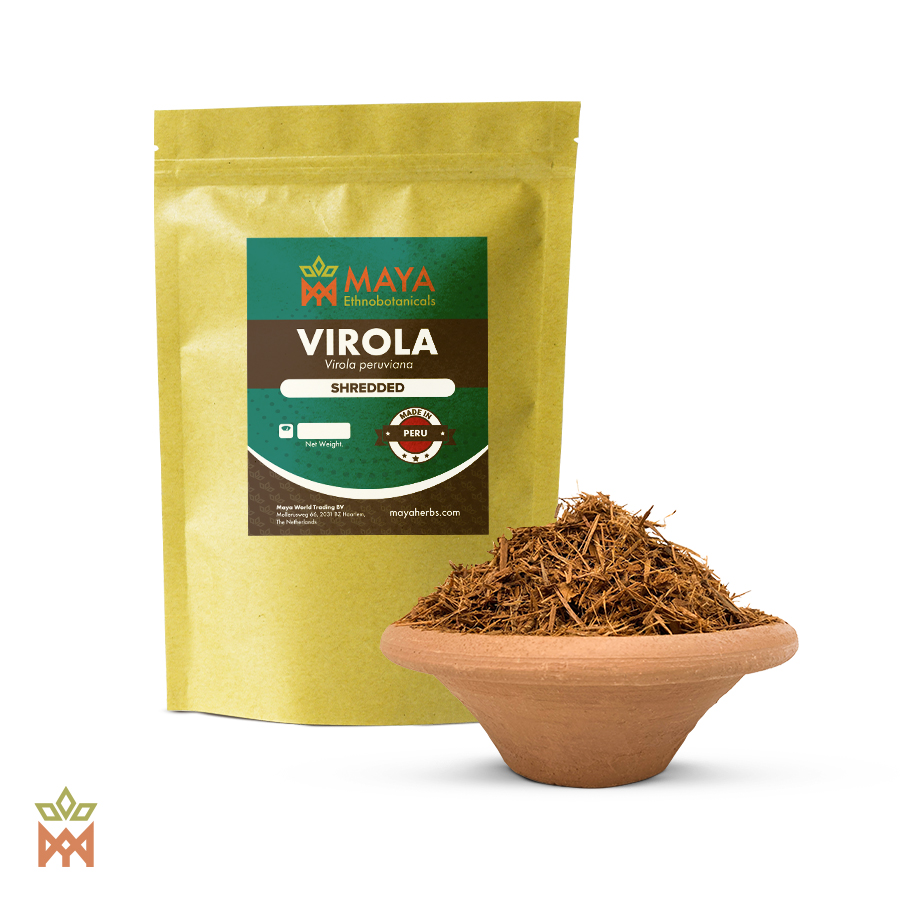
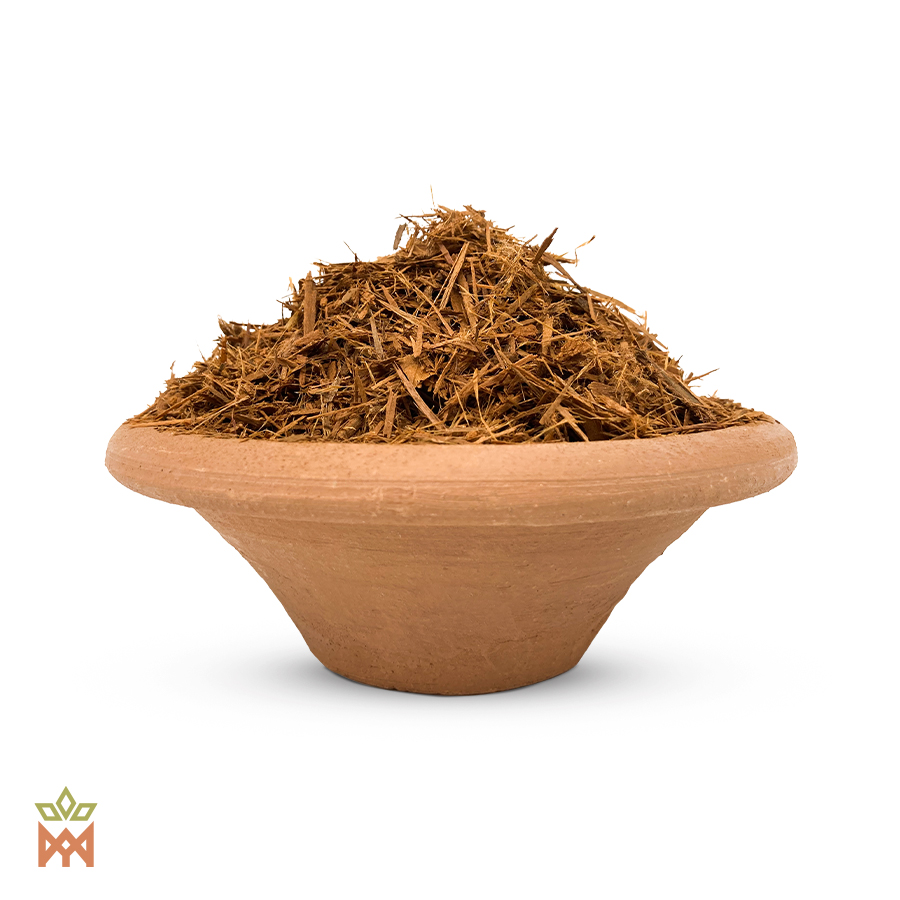

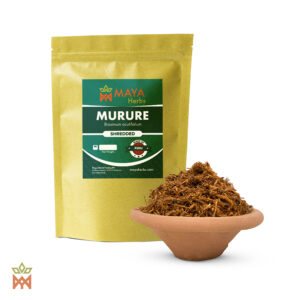


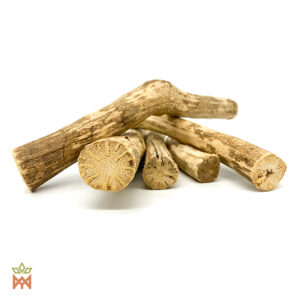
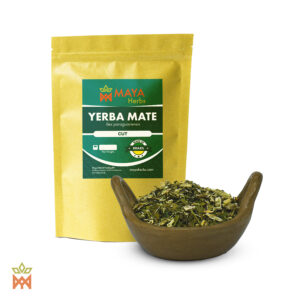

Reviews
There are no reviews yet.